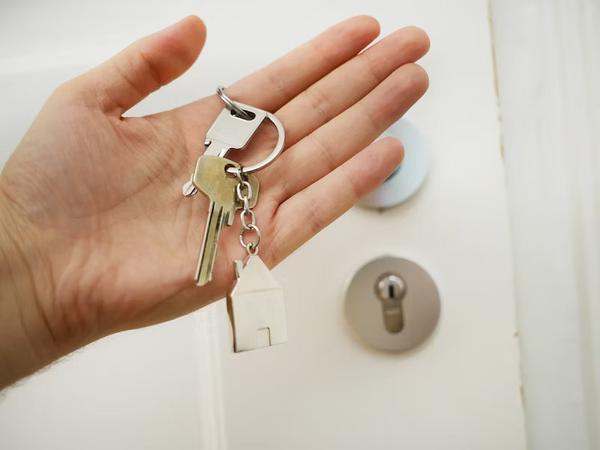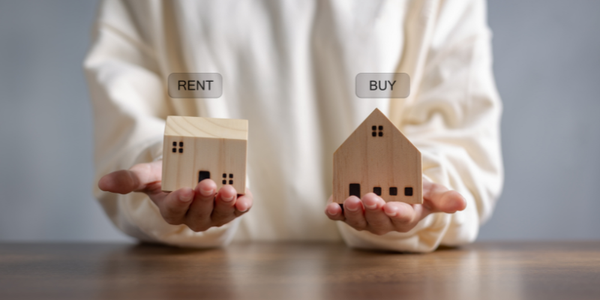Be a Boise Insider
Receive weekly updates, luxury listings, and insider tips on Boise real estate right to your inbox.

First-Time Homebuyers Checklist
Photo Cerdit: Unsplash Buying a home can seem like a daunting task, which is why we made this straightforward checklist of the steps you will follow when buying your first home! Gather up financial information and meet with a lender: Before you start the search for your dream home, take the time to gather essential financial information and meet with a reputable lender. This crucial first step ensures you know your budget and sets the stage for a successful home buying experience. Information needed by a lender may include credit history, proof of income, debt information, and assets and savings. Create your wants/needs list: With your financial foundation in place, the next step is to consider the features and characteristics you want in your future home. Consider your needs, non-negotiable elements that are necessary for your daily life, and your wants, desirable amenities that would enhance your life but may not be essential. Consider your future needs as well as your present ones, and make sure these are prioritized on your list. Work with a realtor: As you begin your journey in finding your future home, working with a seasoned realtor can make all the difference. Realtors offer invaluable experience and knowledge in local markets, access to listings, skill in negotiating, insightful advice, and guidance through the buying process. Working with a real estate agent will ensure you get the best price and house for your needs. Start a home search: When beginning your home search, keep your list of wants and needs at the forefront. Use online resources as well as your real estate agent to find houses for sale, and attend open houses when offered. Make sure to share your thoughts on different houses with your agent so they can tailor further showings to your preferences. View homes, keep notes: When you are viewing multiple homes, it is easy to get mixed up with the layout, location, and amenities each home offers. Taking photos and notes when viewing a home is crucial when you are comparing and looking back on houses later. Consider noting the layout, condition, outdoor spaces, neighborhood, recent renovations, and anything else worth remembering about the home! Write an offer: Once you found a home you can envision yourself living in, it’s time for the next step. Crafting a compelling and well structured offer is vital for securing your dream home. Your realtor is invaluable at this time, so consult with them to determine an offer price that is reasonable and competitive. An offer typically includes contingencies on home inspection, appraisal, and financing, and a closing date. Inspection: Once your offer is accepted, the next step is to get your future home inspected. Work with your realtor to find a qualified home inspector, and attend your home inspection to ask questions and get details on the home’s condition. Once completed, you will review your inspection report with your realtor, who can offer insight on which repairs will need to be done and at what price. If the inspection reveals significant issues in the home, you may have to adjust your offer or walk away from the home in extreme circumstances. Appraisal: The next step after inspection is getting the home appraised (if getting a home loan), which is typically initiated by the lender. The purpose of the appraisal is to ensure the property’s value is significant enough to support the loan amount. The lender will select a licensed appraiser to provide an unbiased assessment of the property's value. The appraised value will then be used to finalize financing of the home. Closing day: Closing day is the highly anticipated day where you finally become the official owner of your new home. Coordinate with your real estate agent in reviewing the closing disclosure, which outlines the final terms of your mortgage, and conducting a final walk through on closing day or the day before. Make sure you are aware of any closing costs included in your closing disclosure, such as fees for appraisal, title search, or attorney fees. During closing, you will sign a series of documents including the mortgage note and deed of trust. Make sure you read through these thoroughly and do not hesitate to ask questions. After documents are signed and the deed is transferred, you will receive your keys and own the home! Pro Tip: arrange for utilities and internet to be set up prior to your move-in day to ensure continuous service. Call ahead of the closing day and coordinate timing to be on our after the closing day, but before your actual move in date. Moving day: Congratulations, you are a homeowner! The last and final step in buying your first home is moving into it. Prepare for the move by coordinating with movers or creating a moving plan, and make sure to label boxes well! Ensure that you set up utilities ahead of time so that you have water and electricity. Also make sure to change the locks so only you have the key to your new home. Pro Tip: change your locks as soon as you receive the keys to your new home.

The Importance of Pre-Approval in the Home Buying Process
Photo Cerdit: Unsplash Embarking on the exciting journey of buying a home? Before you dive headfirst into searching for houses, there is one step that can make the whole process smoother: getting pre-approved for a mortgage. What is Pre-Approval? Pre-approval is a process where a lender evaluates your financial situation and determines the maximum amount they are willing to lend you for a mortgage. Lenders do an in-depth analysis and consider credit score, assets, financial history, and other details in your finances. This is different from pre-qualification, which is a less detailed preliminary assessment of your finances. How long does it take to get Pre-Approved? Mortgage pre-approval takes different amounts of time depending on the lender you go through. Typically, you can expect it to take around 10 business days after you send in all of the information needed. For more specific information on timeline and financial information needed, ask your lender. Benefits of getting pre-approved: Setting a realistic budget: By finding out the maximum amount of money you will be able to spend on your future home, you are able to narrow down your search into houses that fit your budget. This gives you peace of mind as you look at homes, knowing you will be able to afford them! Getting a Competitive Edge: In the real estate world, having a pre-approval gives you a distinct advantage over other buyers. When a seller receives an offer from a buyer with a pre approval, it shows that the buyer has the funds to back the offer and is serious about buying. This can make your offer much more appealing and increase the chances of your offer being accepted. Expediting the Closing Process: Pre-approval expedites the closing process because the loan process has already begun and the initial financial assessments are completed. This makes the time between your offer being accepted and closing on the house faster, allowing you to get into your new home sooner!

Pros and Cons: Homeownership vs. Renting
Buying a home is one of the biggest financial commitments a person can make. Homeownership has a myriad of benefits and is a big step in building wealth. Nevertheless, it is important to consider if your current needs align with homeownership, or if you want to wait to take this step. Explore the benefits and drawbacks of homeownership and renting to make an informed decision on which option fits your lifestyle and goals! Benefits of Homeownership: Long-Term Investment: Historically, home values increase over the years. While it is impossible to say for sure, it is highly probable that buying a home will yield positive returns on investment. Building Equity: Paying off your mortgage builds up the amount of the home you own, which is the equity you have in your home. When selling your home, your profits will increase as the amount you have paid off increases. Federal Tax Benefits: Mortgage interest is deductible on the first $750,000 spent on your home. Additionally, upon selling the home, you can be exempt from paying capital gains tax on the profit, up to $250,000 for single filers and $500,000 for married taxpayers. Stable Monthly Payments: If you finance your home with a fixed-rate mortgage, you will have the same monthly payments for the entirety of your mortgage. This predictability is advantageous in comparison to renting, where you will likely see rent increases over time. Privacy & Personal Preference: Homeownership allows you to make changes where you see fit. Whether you want to change the color of the walls, add an extra room, or get a dog, you have the freedom that many renters do not. Single-family homes provide more privacy without shared walls or outdoor spaces. Community: As a homeowner, you join a neighborhood in a permanent way. This allows you to put down roots, connect with the people in your community, and have a sense of belonging. Drawbacks to Homeownership: Higher Upfront Costs: Closing costs on mortgages, property taxes, home inspections, and insurance costs can make the beginning stages of homeownership costly. However, these costs are typically recovered in 5 years. Less Flexibility: Owning a home can make relocating and changing circumstances more of a challenge than renting. When buying a home, ask yourself if you can picture yourself in this home for at least the next three to five years in order to get the optimal return on your investment. Maintenance Costs: As a homeowner, it is your responsibility to cover maintenance costs. However, repairs and maintenance are investments in the value of your home and could pay off when selling your home. Benefits of Renting: Flexibility: Leases typically last a year, making it much easier to move when life presents circumstances like a new job offer or family changes. You won’t have to prepare your home to sell or rent and can simply clean up and move out. Little to No Maintenance: Landlords are responsible for most maintenance costs and repairs, lifting the responsibility off of you. When something is not working or needs replacement, it can be a big hit when owning a home to pay for it. Drawbacks to Renting: Rent payments don’t build equity: Your rent payments help your landlord pay their mortgage and don’t help you build your personal wealth in equity. In comparison, mortgage payments help you build equity in the home, leading to a much larger payoff over time. Rent may increase: Rent is almost always increasing from year to year, while mortgage payments are typically fixed and do not change. Limitations: Renting can be limiting to what changes you can make to the property, how many people can live with you, and if animals are allowed. If you have a family or furry friends, this can add extra stress and, in some cases, an additional expense.
Categories
- All Blogs (284)
- 30thanniversary (1)
- activities (158)
- agents (17)
- announcement (1)
- apartment (1)
- april (2)
- architecture (3)
- art (7)
- art festival (2)
- article (1)
- august (3)
- awards (3)
- beer (4)
- biking (1)
- boise (145)
- Boiseevents (126)
- boisehousing (12)
- boiseriver (13)
- brew festival (6)
- buyers (35)
- campgrounds (1)
- camping (2)
- cars (1)
- children (22)
- christmas (4)
- cincodemayo (1)
- coffee (1)
- communities (3)
- concert (8)
- condominium (1)
- couples (3)
- development (4)
- downtownboise (60)
- downtownyproject (1)
- eagle (9)
- east boise (1)
- easter (1)
- event (11)
- fair (7)
- fall (15)
- family (1)
- familyfriendly (63)
- farmersmarket (13)
- Father's Day (2)
- fathersday (1)
- fest (5)
- festival (6)
- food (5)
- funfacts (2)
- galentines (1)
- garden (5)
- halloween (1)
- holiday (14)
- holidays (23)
- homechecklist (19)
- homeowner (2)
- hotsprings (2)
- housing (20)
- idaho (37)
- idaholife (100)
- idaholifestyle (107)
- july4th (4)
- kids (22)
- laborday (1)
- landmarks (1)
- lifestyle (88)
- listings (16)
- livelocal (49)
- Mandy (1)
- market (7)
- markettrend (1)
- marketupdate (12)
- may (2)
- memorial day (1)
- meridian (1)
- mortgage (3)
- mothersday (2)
- mountain (1)
- movies (2)
- museum (3)
- music (3)
- music festival (10)
- musical (1)
- nampa (3)
- NAR Settlement (1)
- neighborhoods (32)
- news (1)
- outdoorrecreation (88)
- outdoors (90)
- parks (44)
- pool (1)
- property taxes (1)
- ranking (1)
- realestate (48)
- realestatemarket (29)
- recreation (98)
- restaurants (27)
- run (1)
- sellers (35)
- september (3)
- shoplocal (25)
- shops (36)
- spring (6)
- st patrick's day (1)
- summer (15)
- team (2)
- thanksgiving day (3)
- thingstodo (157)
- tips (100)
- trails (1)
- treasure valley (9)
- trends (7)
- valentines (2)
- waterpark (1)
- wine (5)
- winery (9)
- winter (17)
Recent Posts


















